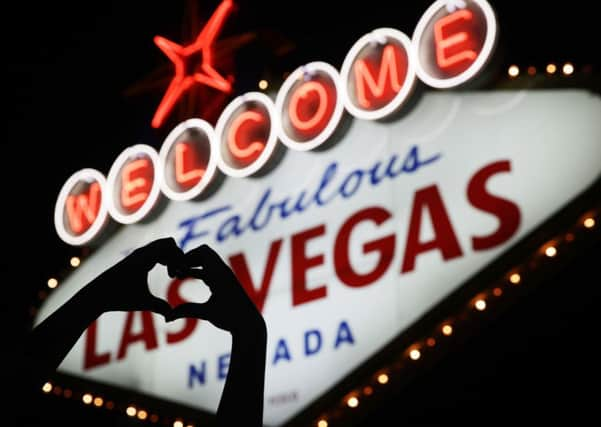Neil McNicholas: Will America ever learn on gun control?


We are all familiar with the on-going debate in this country surrounding calls for our police to be armed as a matter of course in order to protect themselves against increasingly violent and armed criminals and other aggressors. Whilst being concerned about such a situation, I’m sure most people would support a police officer’s right to decide for him/herself whether to be armed or not. Having the potential to bring someone’s life to an end is an almost overwhelming prospect that few of us not on the front-line of law enforcement might find it impossible to truly comprehend.
Having said all of that, in recent years we have become increasingly familiar with the sight of armed police officers – initially in our airports, but also now on the streets in key locations where security is a particular concern. Our reaction to such a situation is probably best reflected in our unease at seeing firearms at much closer quarters than most of us are used to, and yet at the same time it is reassuring when we remember the sort of world we live in.
Advertisement
Hide AdAdvertisement
Hide AdWhen I was at university in Florida pre-priesthood, I organised the Neighbourhood Watch scheme in the community where I lived. When I was first setting up the programme, the local sheriff’s department sent an officer round to my apartment to talk to me and help me get things started. I was sitting across from him in my lounge and became acutely aware of the gun he was wearing, which probably seemed much larger for being inside rather than outdoors. It was the first time I had been that close to an armed police officer and also that close to a gun. The fact was, and is, that in American society an armed police force has become a necessity – indeed, going back to the days of the Wild West, it always has been the case.
There was nothing unique about the role of the gun in the birth of the United States as a nation – most countries can look back to periods of warfare, even civil warfare, in their histories. The difference is that this country, for example, went through its birth pangs at a time of swords, and bows and arrows, and we gave them up centuries ago. The United States, on the other hand, being a relatively young nation, came to birth at a time of handguns and rifles and it has yet to give them up.
The right of the people to keep and bear arms was enshrined in the US Constitution at a time when there could have been a very real need to raise a military force from the civilian population, but surely such a need has long been eclipsed by the presence of a regular army, navy and air force, not to mention the National Guard. The problem is that the proliferation of personally held weapons, whether for legal or illegal purposes, has become a self-fulfilling justification for people carrying guns and having them in their homes for protection. It’s a genie once let out of the bottle that is now impossible to put back again, and the US is reaping the whirlwind.
As the horror of the mass shooting in Las Vegas unfolded, some very telling statistics have emerged in the media.
Advertisement
Hide AdAdvertisement
Hide AdSome 11,000 people in the US are killed in firearm assaults each year.
Gun violence is a leading cause of death in America.
More Americans have been killed by guns since 1968 than in all US wars – around 1.5 million and 1.4 million respectively. Those numbers were for all gunfire deaths – homicides and suicides constituting the majority. Reference was also made to “an unrelenting toll of gun violence”.
And perhaps the most poignant reflection, from BBC news reporter James Cook, referring to the powerful National Rifle Association lobby in the US Congress was this: “America has the capacity to stare at the faces of its dead, and do nothing.”